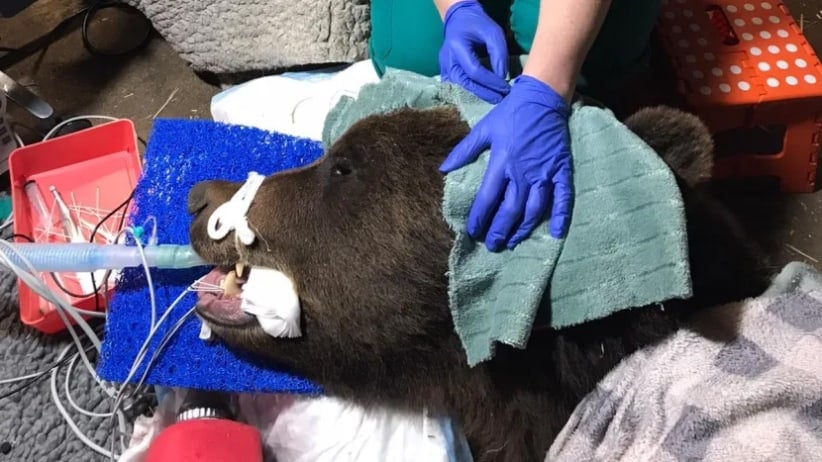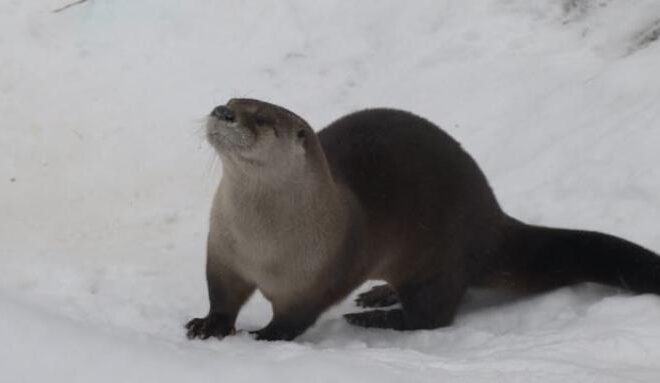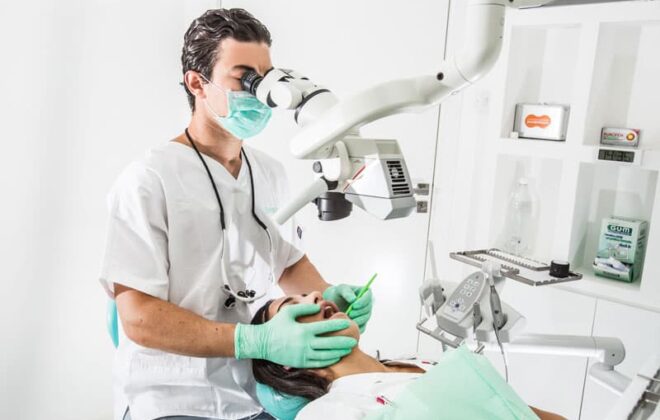Bear with a sore tooth gets a root canal
A bear with an extremely sore head has undergone emergency dental treatment at Bristol’s Wild Place Project.
Four-year-old Neo, who is a European brown bear, was suffering from an abscess at the base of one of his canine teeth.
His keepers spotted the problem after Neo, along with three other bears, came out of torpor – which is as a slightly lighter form of hibernation.
Martin Brice, of Emerson’s Green Veterinary Surgery, carried out root canal work to fix the fractured canine tooth, along with Wild Place Project’s in-house vets Michelle Barrows and Charlotte Day.
 Credit: Wild Place Project
Credit: Wild Place Project
Mr. Brice said: “I’m used to treating much smaller, domestic patients at my clinic in Bristol and it’s always a pleasure to be asked to help out with dental procedures on zoo animals.
“Neo’s root canal surgery was essential to treat the infection that caused the abscess.
“It is possible that he might require further treatment in around six months as he’s quite a young bear and his teeth may not yet be fully mature.”
Neo was under general anesthetic in his den for around three hours, which also allowed zoo vets to carry out a full health check.
Michelle Barrows, Head of Veterinary Services and Conservation Medicine at Bristol Zoological Society, said: “Neo’s dental treatment provided us with an opportunity to conduct a thorough health check.
“We regularly carry out visual checks on our animals, however a general anesthetic provides the perfect opportunity to get up-close to our larger and more dangerous species and carry out diagnostic tests as well as physically assess their condition.”
Michelle added: “As expected, Neo had lost some weight following torpor but is still in good body condition. His other results came back all clear and he has made a quick recovery following his dental work.
“We’re very grateful to Martin for providing his expertise and allowing Neo to benefit from the root canal treatment.”
Neo’s home at the Wild Place Project, which is run by Bristol Zoo, was recently named Visitor Attraction of the Year at the Bristol, Bath and Somerset Tourism Awards.
The attraction transport visitors back in time to see what life was like in Britain more than 10,000 years ago.
Wild populations of European brown bears still exist in Northern Europe and in Russia, including a small but growing population in the Pyrenees, the Cantabrian Mountains in Spain, the Abruzzo in South Tyrol and Trentino regions of Italy.
The species became extinct in Britain around 1,000 AD, due to over-hunting.
Article originally appeared at: https://www.itv.com/
Author: ITV News



